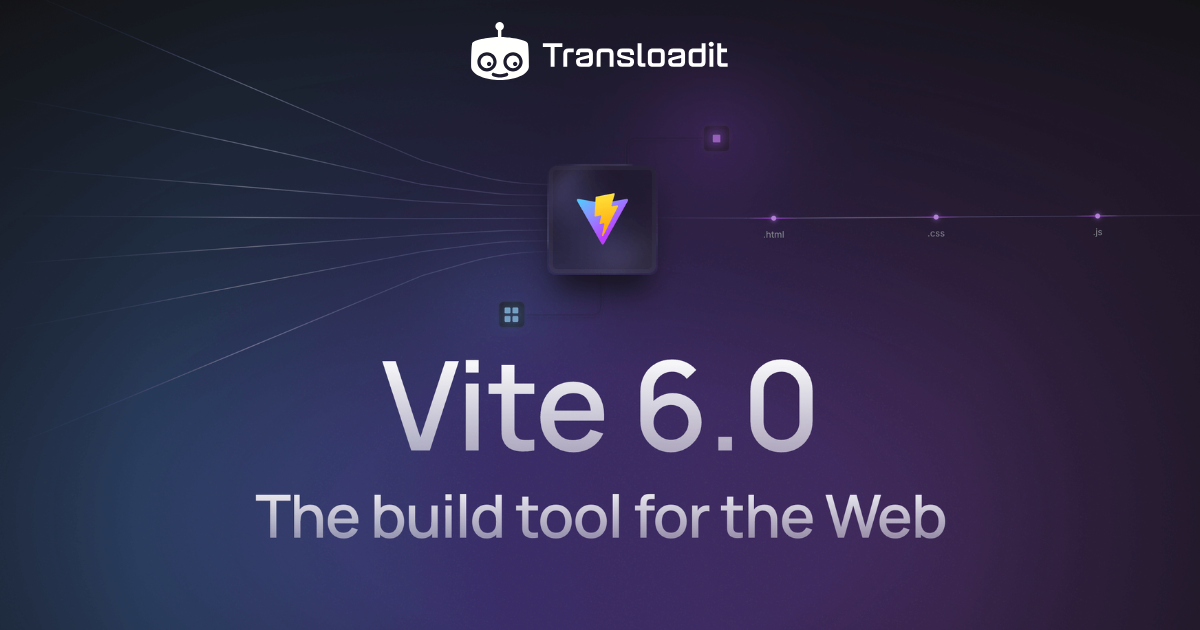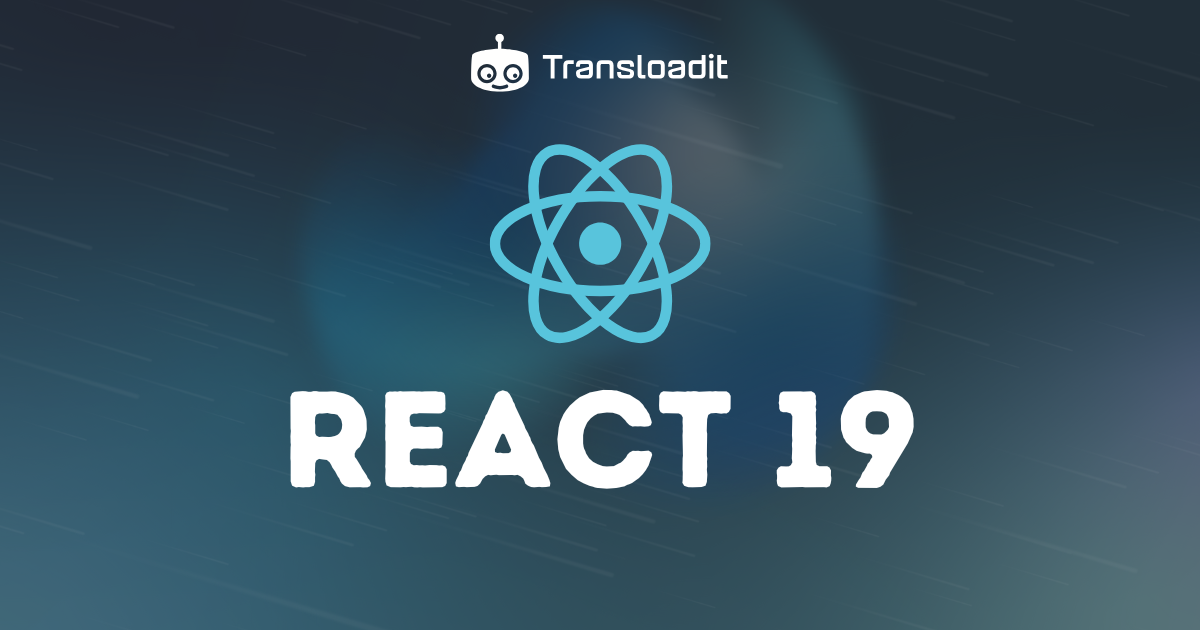The Dev Times #85

Halfway through each month, our newsletter for developers: The Dev Times, brings three reads that our own developers found interesting on the web, and two Transloadit updates that may interest you.
Vite 6 is out!
As the year comes to a close, we're seeing several major releases across the web – including the anticipated arrival of Vite 6.0! Vite has been growing at a staggering pace: amassing 17 million weekly downloads on npm, up from 7.5 million last year. The primary aim of this new major release is to encourage more innovation and improvements, by providing even more powerful tools to framework authors. Together with ecosystem partners and a myriad of community contributors, the Vite team has been working hard on making Vite 6 faster and more feature-rich. The announcement blog lays out all the changes and explains how to get started with Vite. Find out more ›
React v19
Following on from Vite, React has also recently announced their next major step with React 19. It'd be impossible to go through all the new changes in just a few sentences, so here are the highlights. React now brings support for a new paradigm for handling async functions, which they're calling "actions". This comes with several new hooks to streamline the handling of loading and error states in response to data mutations. For those familiar with Next.js, React 19 also brings server components and server actions to handle async component rendering that should be offloaded to the server. There is a lot more – including a guide on how to upgrade to the latest version – in the official announcement. Dive in ›
Introducing the Model Context Protocol
As large-scale LLMs have become mainstream, seeing daily use by many, there has been a distinct growing need for a standardized way for developers to connect their data to AI-powered tools. That's why Anthropic has developed what it calls the "Model Context Protocol" (MCP). Anthropic proposes an open standard for developers to be able to either expose their data through MCP servers, or to build AI applications that act as MCP clients, connecting to these servers. Several applications such as Apollo, Zed and Sourcegraph are already working with MCP and it will be interesting to see what the future of this protocol holds. Try it out ›
Documenting file upload APIs with Swagger and OpenAPI
Documenting your file upload and download APIs is essential for ensuring maintainability and ease of use in web services. In this post, we explore how to effectively document your file APIs using Swagger and the OpenAPI Specification, enabling developers to seamlessly interact with your RESTful services. Check it out ›
Efficient image delivery: creating your own CDN
Building your own Content Delivery Network (CDN) for images can significantly enhance your application's performance and give you full control over image delivery. In this guide, we explain how to create and optimize a custom CDN for efficient image delivery. Read more ›




